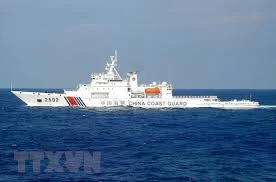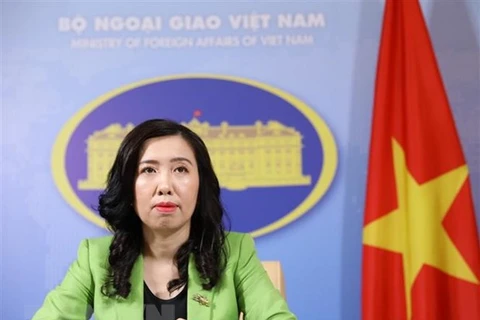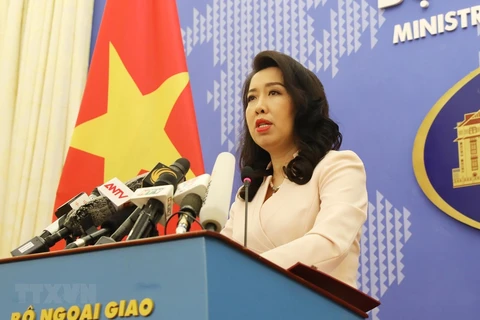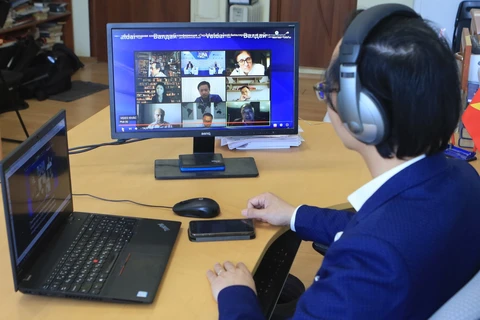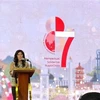Moscow (VNA) – The Russian Academy of Sciences (RAS) held a webinar on conflicts in the East Sea and current challenges and threats on June 20, attracting around 30 leading experts and scholars in Asian-Pacific-related issues in Russia.
Speakers’ speeches focused on recent tensions in the East Sea, unilateral actions, international law violations, reactions of related parties, the role of the Association of Southeast Asian Nations (ASEAN), and impact of the COVID-19 pandemic on the East Sea situation.
Scholar Pavel Gudev from the RAS Institute of World Economy and International Relations stressed that the making and signing of a legal-binding Code of Conduct in the East Sea (COC) is extremely important to adjust the conduct of parties involved.
Prof. Dr. Dmitri Mosyakov, Director of the Centre for Southeast Asia, Australia and Oceania Studies of the RAS Institute of Oriental Studies, said that Vietnam has made contributions to maintaining peace in the region, thus helping increase ASEAN’s position and role in the world.
Vietnam is consistent with its policy of settling disputes by peaceful means and supporting the early signing and enforcement of the COC, he said, adding that the country’s cooperation with other countries in Asia and the world has had positive impact on reducing tensions and contributing to peace and stability in the East Sea.
His view was shared by many other participants at the event who also emphasised the country’s consistent policy of solving East Sea-related disputes peacefully and obeying international law, especially the 1982 UN Convention on the Law of the Sea (UNCLOS).
Regarding Russia’s policies related to the East Sea issue, they stated that Russia always backs relevant parties solving disputes by peaceful diplomacy, speeding up negotiations on and early signing the legal-binding COC./.
VNA

